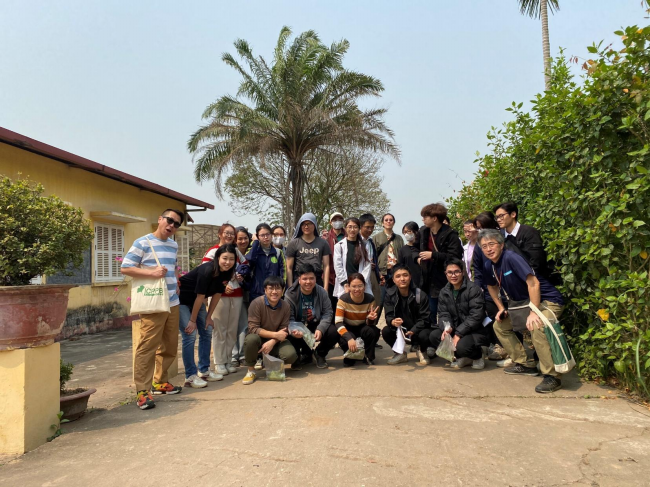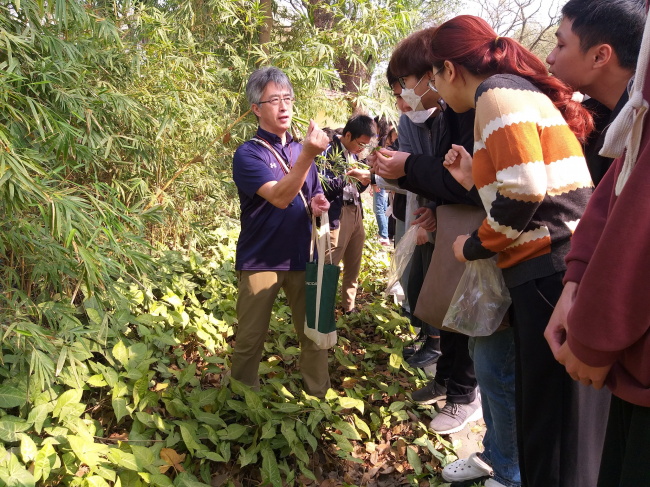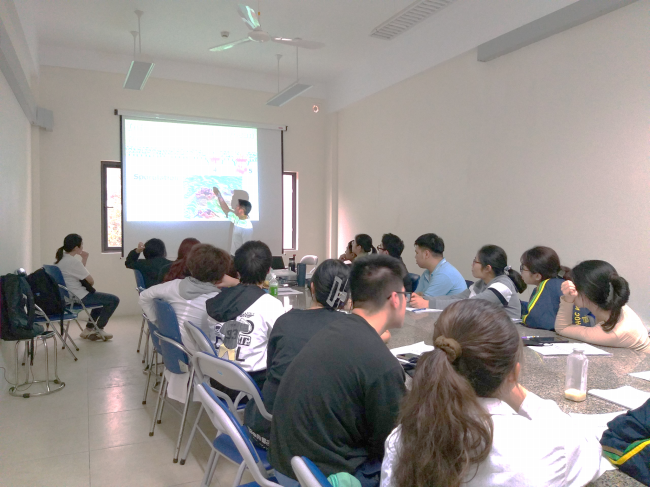The short-term training program was held by the Faculty of Biotechnology, Vietnam National University of Agriculture (VNUA) and the University of Tsukuba from 14 to 17 of March, 2023. This program aimed to help students broaden their understanding of biodiversity of microorganisms in the natural environment and practices laboratory techniques.
Twenty students were selected from the Faculty of Biotechnology and the Faculty of Agronomy, VNUA to attend this program under the instruction of Mr. Takuma Nada, Dr. Nanami Sakata, Dr. Yasuhiro Ishiga and Dr. Izumi Okane from the University of Tsukuba, Japan.

Mr. Takuma Nada, Dr. Nanami Sakata, Dr. Yasuhiro Ishiga and Dr. Izumi Okane and VNUA students
During the time of the programs, under the careful guidance of the instructors, VNUA students had an opportunity to take part in a wide range of scientific activities as well as carry out many laboratory techniques.
On the first day of the program, students were introduced to the outline as well as the techniques used in the program. They then were introduced to rust fungi and how to detect them in the natural environment. Samples of rust fungi infected leaves from different plants in VNUA campus were collected. Students then learned how to prepare dried specimens to keep all the collected leaves in good conditions.

Dr. Izumi Okane gives students the instructions to collect rust fungi infected leaves
The training program included hands-on practical experiences for microscopy and culturing of microorganisms (fungi and bacteria) and molecular biology, such as environmental DNA (eDNA) purification, PCR, and gel electrophoresis. This course also contained PowerPoint presentation training.

Laboratory activities
Along with laboratory activities, students also joined lessons given by all instructors. Knowledge of rust fungi was provided in details that attracted the attention from all participants. Participants were introduced to the research work of the instructors in Japan that help students better understand about rust fungi and how to control them to protect crops.

Dr. Yasuhiro Ishiga presents his research
Through hands-on experiences and active interactions with the instructors, the training program was absolutely fruitful as students participated with enthusiasm and acquired new and useful knowledge of microorganism and practice laboratory skills.
On the last day of the program, students presented what they learned and the result from their experiment. They received many valuable comments and feedback from all of the instructors.
The training programs only lasted for 4 days but it has brought the participants many great values. Students had an opportunity to listen, interact and work with Japanese professors and teachers which helped them to be more confident with their abilities and future work.